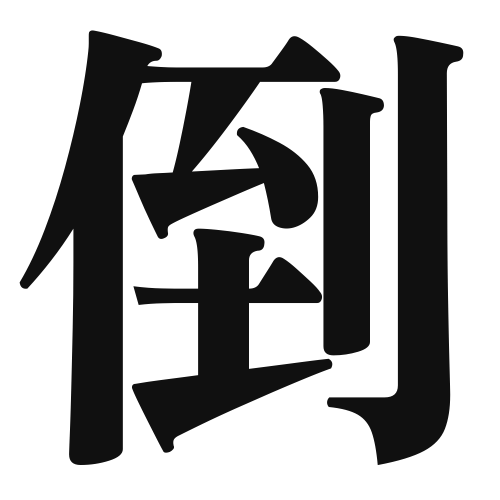1. Overview of Meaning
The kanji “倒” (pronounced “tō” or “dō”) primarily means “to fall,” “to topple,” or “to collapse.” It conveys the idea of something being overturned or brought down, whether physically or metaphorically.
2. Formation and Radical
Formation of the Kanji: The kanji “倒” is a compound character that combines elements to convey its meaning. It consists of the radical “亻” (which represents a person) and the character “到” (which means “to arrive”). Together, they suggest the action of a person falling or being brought down.
Radical: The radical of “倒” is “亻,” which is a variant of the radical for “person” and is commonly found in kanji related to human actions.
3. Examples of Usage
Common Words and Phrases: Some frequently used words that include “倒” are:
- 倒れる (taoreru) – to fall down
- 倒産 (tōsan) – bankruptcy
- 倒木 (tōboku) – fallen tree
Example Sentences in Daily Conversation:
- 彼は階段から倒れた。 (Kare wa kaidan kara taoreta.) – He fell down the stairs.
- 会社が倒産した。 (Kaisha ga tōsan shita.) – The company went bankrupt.
4. Synonyms and Antonyms
Similar Kanji: A similar kanji is “落” (raku), which also means “to fall” but often implies a more gentle or gradual descent, like falling leaves.
Opposite Kanji: An antonym is “立” (ritsu), which means “to stand” or “to rise,” representing the opposite action of falling.
5. Cultural and Historical Background
Relation to Japanese Culture: The concept of “倒” is often reflected in Japanese culture, particularly in the context of resilience and recovery after a fall, both literally and metaphorically.
Proverbs and Idioms: One common saying is “倒れても立ち上がる” (taorete mo tachiagaru), which means “to get back up after falling,” emphasizing the importance of perseverance in the face of adversity.
